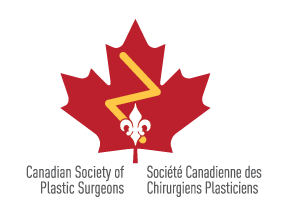Nutrition and Exercise
Nutrition and exercise are key to keeping your skin healthy. Not surprisingly, stress, unhealthy eating habits, and lack of exercise will be reflected in the tone, colour, and condition of your skin. Luckily, the opposite is also true. That's why your skin is said to “glow” when you're terrifically happy and healthy.
A balanced diet, regular physical activity, and adequate rest are the building blocks of good health. Poor nutrition and too little physical activity can lead to weight gain or even rapid weight loss and other related health problems. By eating right and being active, you can stay at or reach a healthy weight and look terrific at any age. But remember to talk to your general practitioner before starting a new exercise or nutrition program.
Read more nutrition guidelines...
What is a healthy eating plan?
What you eat affects the appearance of your skin. Skin cells are highly active – they’re lost and replaced very quickly – which is why nutrition is so important in maintaining a healthy complexion.
A healthy eating plan is one that:
- emphasizes fresh fruits, vegetables, whole grains, low-fat milk, and dairy products
- includes lean meats, poultry, fish, beans, eggs, and nuts
- is low in saturated fats, trans fats, cholesterol, salt (sodium), added sugars, and artificial sweeteners
- maintains hydration status
The good fats: oily fish contains omega 3 oils that will help nourish your skin. Ground flaxseeds are also an excellent source of omega 3. Olive oil is a particularly good source of antioxidants (keep in mind the benefits are lost if it is used as a cooking oil).
Vitamin A, B, C, and E are also essential for good skin. And zinc is a trace element that is said to support the collagen and elastin in your skin. Plus, your body needs an adequate supply of iron at all times. Of course, always maintain a healthy balance when taking vitamins – in particular, an excess of vitamin A can be irritating to the skin and liver. Natural sources found in food are always better than synthetic sources, such as vitamins or other over-the-counter products.
Vitamin E is a fat-soluble vitamin present in nuts, seeds, vegetables, fish oils, and whole grains, especially wheat germ.
Vitamin C (ascorbic acid) is a water-soluble vitamin present in citrus fruits and juices, green peppers, cabbage, spinach, broccoli, kale, kiwi, and strawberries.
Read... Ten Fitness Tips for a Healthy Summer
More fitness tips can be found at www.pierrekharyati.ca/
A healthy weight leads to healthy skin:
Staying at a healthy weight can not only be a good thing for your entire well-being, it’s good for your skin too. Gaining or losing weight too quickly can lead to stretched skin and wrinkles. Body mass index (BMI) is one way to tell whether you're at a healthy weight, by measuring your weight in relation to your height. If you're in the overweight or obese range on the index, you're more likely to have health problems.
Are you taking at least 10,000 steps a day?
Don’t worry – you don't have to be an athlete to benefit from regular physical activity. Even modest amounts of exercise can make you feel and look better. Start with small, specific goals like walking 10 minutes a day, three days a week and slowly build up from there. Keep an activity log to track your progress and use a pedometer to check that you’re taking those 10,000 steps a day (give or take a step). You’ll be amazed at the difference it makes and how much it helps with your cardiovascular system, muscle tone, and fat-burning capabilities.
Strengthening exercises:
Doing strengthening exercises regularly helps build bones and may even prevent bones loss as you age. Focus on working the major muscle groups of the body, such as the chest, back, and legs. Do exercises for each muscle group two or three times a week. Allow at least one day of rest for your muscles to recover and rebuild before another strengthening workout (it's safe to do aerobic activity every day). An exercise or strengthening program should always begin under the care and direction of your physician.

